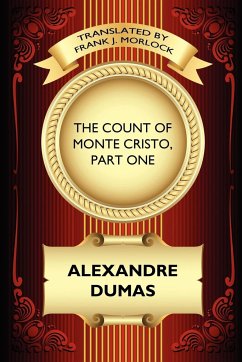Young Louis XIV (La Jeunesse de Louis XIV) is generally considered by critics to be one of Dumas's best plays. This joyous romp through history focuses on Louis's seizure of power in 1658, and his romance with Marie de Mancini under the oak tree. As a portrait of a young king on the verge of greatness, there's nothing else like it except for Shakespeare's trilogy about Prince Hal (Henry IV, Parts I and II, and Henry V). But Louis is a more likable prince than Hal, and even though he doesn't have a Falstaff to play against, he demonstrates an innate nobility, plus a willingness to shock his aristocrats by lunching with Marie, and by getting along with people from all walks of life, including the flower girl Georgette. His weakness is his love for the ladies--all ladies! This energetic and well-plotted drama will please theater-goers everywhere!
Hinweis: Dieser Artikel kann nur an eine deutsche Lieferadresse ausgeliefert werden.
Hinweis: Dieser Artikel kann nur an eine deutsche Lieferadresse ausgeliefert werden.









